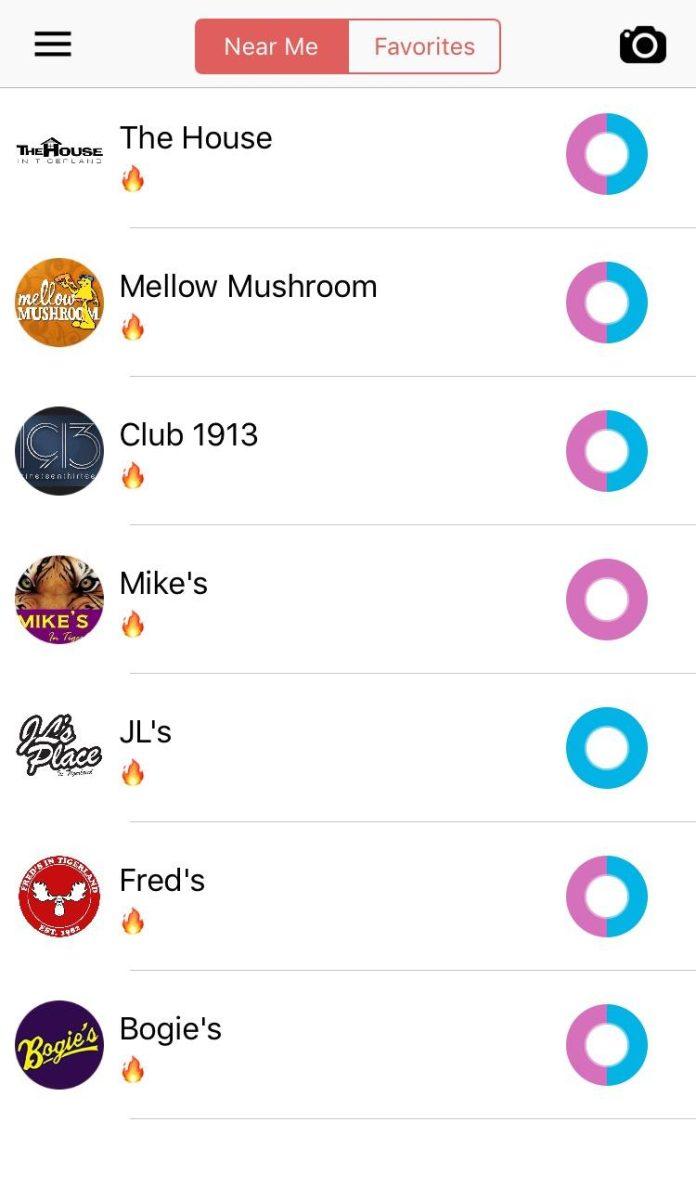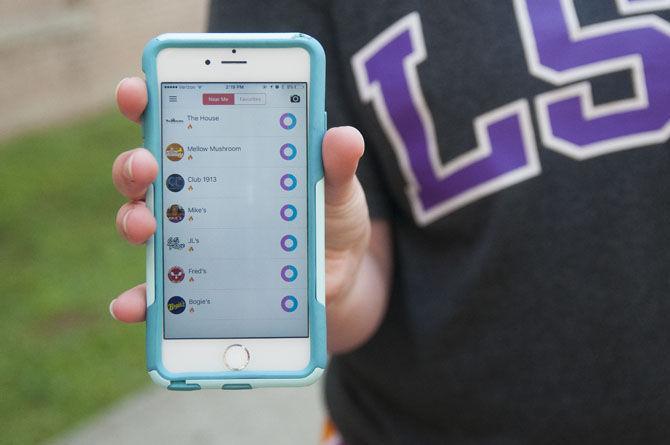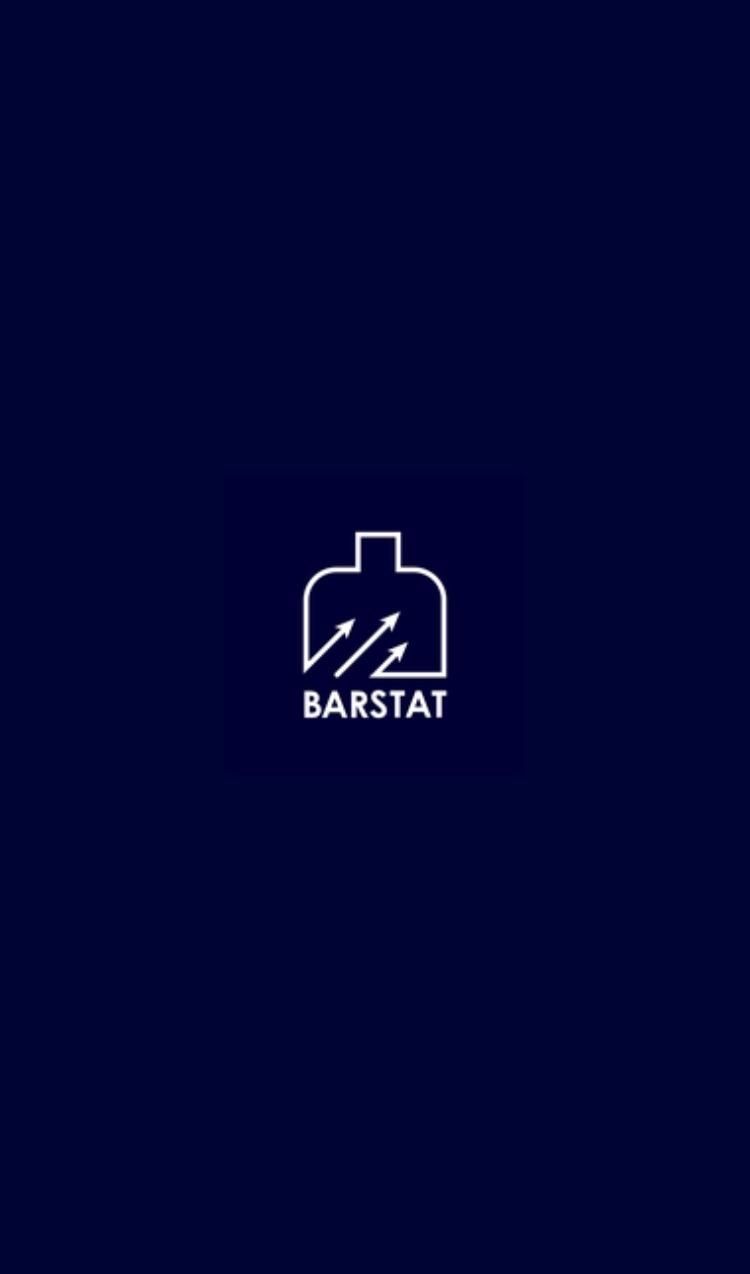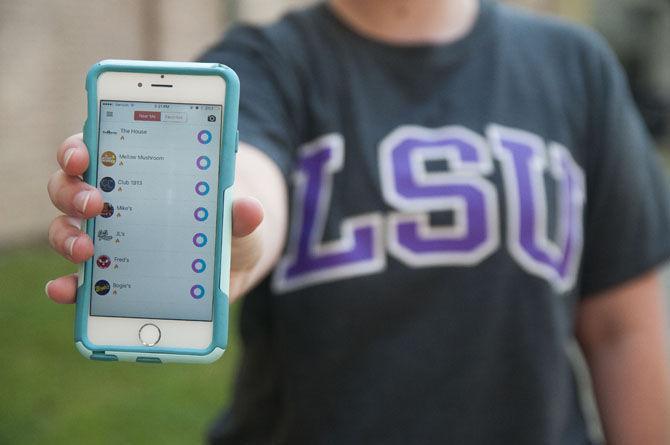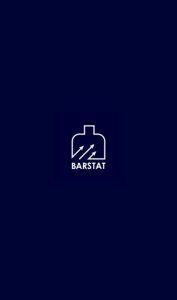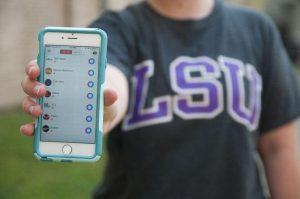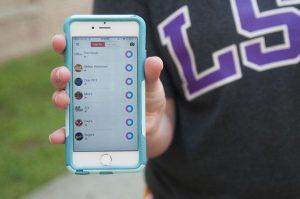It’s a common collegiate problem: you pay for your Uber, arrive at the bar and shell out money for cover, only to realize your friends bar hopped and the place is dead.
The students behind the new nightlife app Barstat want to change that.
First released for iOS on July 28, the student-targeted app allows bar patrons to more efficiently plan a night out, said programmer and chief technology officer Steven Wong. The computer science junior said the app allows users to compare specials and cover prices at venues in Tigerland and other popular University haunts, while simultaneously tracking which friends are at what bars.
“This way you don’t have to creepily go out to other bars to check out where people are,” said CEO and marketing senior Tirth Shah.
The idea for the app stemmed from a class project, said Wong, who has been developing the mobile app for over six months. After separating from his initial partners, Wong teamed up with Shah, construction management junior Mark Segalla, finance junior and The House in Tigerland co-owner Jeffrey Vaccaro and computer science senior Cameron Gamble to bring the app to life.
There’s nothing like it on the market, he said.
Barstat, once enabled in location services, uses geofencing technology to record users’ location at each of the seven bars currently registered on the app. When a user enters the geofence, his or her profile will be used to tally male-female gender ratios at the establishment and track the bar’s popularity on a “lit” meter, Wong said.
The stats will be visible to all users on the app’s home page.
Users’ friends will also be able to track their location while inside a listed bar, making it easy for groups to meet at the correct location, he said. Once you arrive, you can elect to send your friends at that particular establishment a push notification announcing your arrival, Wong said.
Location tracking will cease once you exit the geofence, so if you’re walking between bars or heading to Pluckers for late night wings, your location won’t be recorded or visible to other users, he said.
“We don’t want people to think everyone will always be able to see their location because that’s not what we’re about,” Segalla said.
Users will also be able to block friends from seeing their location, he said.
Other features include live stories for each bar, a plug-in for Uber that will automatically load pick-up and drop-off locations for your ride and a tie-in with LineLeap, a service that allows users to skip the line at an establishment for an upcharge, Wong said.
So far The House in Tigerland is the only bar signed on to participate in the LineLeap program, Shah said.
The marketing senior said the team also has plans to add a leader board feature to the app. Each venue would have a leader board of its most frequent customers and could provide incentives to its most loyal patrons, he said.
The leader board could help create competition among the bars for best deals, a win for students, Shah said.
Barstat will also benefit the bars by providing more precise customer analytics. The venues will be able to receive data about crowd size, customer demographics and customer frequency to determine markets for growth and better target their advertisements, he said.
Additionally, bars may eventually be able to advertise within the app, an important method for reaching a customer base that isn’t easily reached through print and television ads, Shah said.
The app could also help bars increase traffic in real time, Segalla said. Each bar registered on the app has a back end account allowing them to update specials and cover prices in real time. If an establishment wants to increase sales, they can send an alert to users announcing limited time deals, the chief marketing officer said.
Users will only receive the notification if the bar is on their favorites list.
The real time response capability could be especially beneficial to venues outside the boundaries of Tigerland, which typically struggle to maintain customer interest, Wong said.
The team has plans to expand the app to a wider swath of bars in the Baton Rouge area. Currently, The House in Tigerland, Mike’s in Tigerland, Bogie’s Bar, JL’s Place, Mellow Mushroom, Club 1913 and Fred’s in Tigerland are registered on the app.
The app is currently in the early phases of roll-out and the team is planning an aggressive mass marketing strategy on social media and in Tigerland in the coming weeks.
Once the app has established a foothold at the University, the entrepreneurs said they hope to expand to other SEC schools, beginning with the University of Mississippi and the University of Georgia, where the group already has connections.
Barstat is currently available for Androids and iOS.



